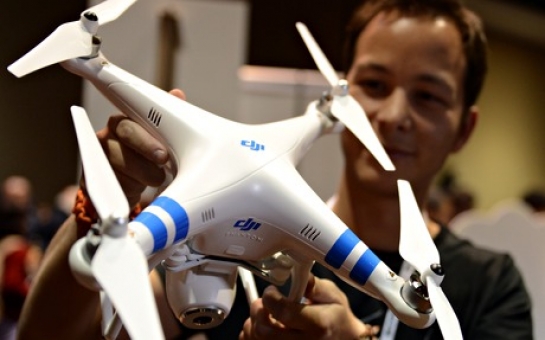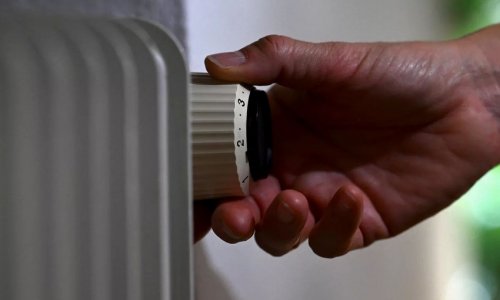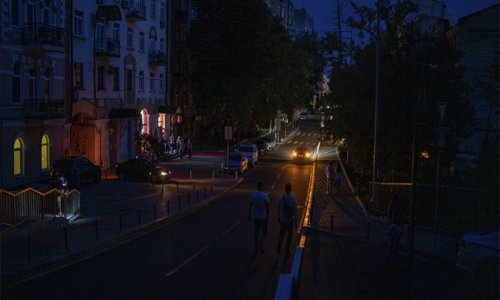Follow us !
Worried about your privacy? Wait until the drones start stalking you
World
19:00 | 10.02.2014

Worried about your privacy? Wait until the drones start stalking you
We live in an age increasingly shaped by our attitudes to, and our definition of, privacy. It is arguable whether the state of privacy itself has ever been more comprehensively and routinely challenged, and in many ways our changing relationship with technology is at the heart of this.Reviewing the privacy controversies of the last few years reveals how far our sense of acceptable "inversion of privacy" has shifted. Take Facebook, its billionaire founder Mark Zuckerberg wallowing in the glory of his first decade in charge of one of privacy's biggest agents of change. Users first revolted when the site introduced the newsfeed — yet now it feels rather benign in terms of its challenge to our sense of privacy, as well as being the main reason for visiting the site.The boundary between the public and the private is porous, a slew of privacy levels to dial round and push back, depending on the audience; one person might be happy to overshare baby photos publicly, while another won't entertain being part of Facebook's semi-public "friends" discussion. The company's developer-first principle of pushing out a feature and then adapting it after feedback from users may have been good for business, but has also helped edge back the boundaries of what we define as public.Zuckerberg back-pedallsNow that we have all largely accepted the oversharing norm, Zuckerberg himself – who not so long ago claimed that privacy was over – seems curiously to have back-pedalled, introducing anonymous logins for some of Facebook's new apps."If you're always under the pressure of real identity, I think that is somewhat of a burden," he told Businessweek last month, acknowledging the competition from lower-profile, anonymous chat tools such as Snapchat.Google has navigated a galaxy of privacy scandals. At one end of the spectrum, its Street View cameras have inadvertently recorded public sex acts, nose-picking, and a naked man climbing in the boot of his car – and at the other end of the scale had to reassure consumers after a more prescient scandal about them sucking up personal information from unsecured wi-fi networks.Ultra-smart gadgetsGoogle has pledged that Google Glass, its internet-connected tech specs, won't have image recognition switched on because of privacy concerns. "Well, never say never, but we have said we wouldn't do it," executive chairman Eric Schmidt said when I asked if that was a permanent commitment. And then there's last month's acquisition of Nest Labs, which makes ultra-smart gadgets for the home. Nest started with an internet-connected thermometer and then made a similarly wired-up smoke alarm; does this mean Google now has access to data inside your personal, physical space too?"These are conspiracy theories," Schmidt told me at the time. Crucially, his explanation was that Google relies on trust — lose that trust and Google loses the consumer.Just as privacy isn't absolute, neither is trust. We find different levels of appropriate privacy or publicness and, as consumers, we need to trust a company only enough to give it our data. If the person using the site doesn't have any experience of revealing too much, or needing to keep some kind of issue private, that can't be a fair exchange to make. Schmidt used teenagers as an example.'It's not OK to invade privacy'"Teenagers are not legally an adult for a reason. My advice to parents would be to know their passwords and monitor what they are doing."He said that with a straight face, but it's a suggestion that will no doubt have the parents of teenagers rofling. Schmidt claims 90% of privacy violations are self-generated."It's not OK fundamentally to invade privacy – just because we have the tools to invade privacy that doesn't make it right."All these developments are framed by the biggest technology story of the decade – that our online lives are accessed, monitored and stored by the UK and US security services. So we face surveillance in our online world, on our mobiles, on the street through CCTV and perhaps next in our own internet-connected smarthomes, plus social scrutiny of the parts of our lives we choose to display on social networks. Surely there can't be more to come?Well, the next privacy scandal in waiting is the story of drones. Not military drones, but increasingly widespread use of drones for agriculture, disaster areas and emergencies, archaeology, forestry and property management, among others.Drones are banned in London and can't be used below a certain height in residential areas. But how many uses could there be for a small, silent, fast, remote-controlled drone? How long before the first sunbathing politician is snapped on holiday? If the public is banned from a venue, or refused access to private land, or if a property is under siege from journalists, how long before a drone is used for high-quality aerial video?The next time you step outside and head off for some time alone, remember to look up.(theguardian.com)ANN.Az










